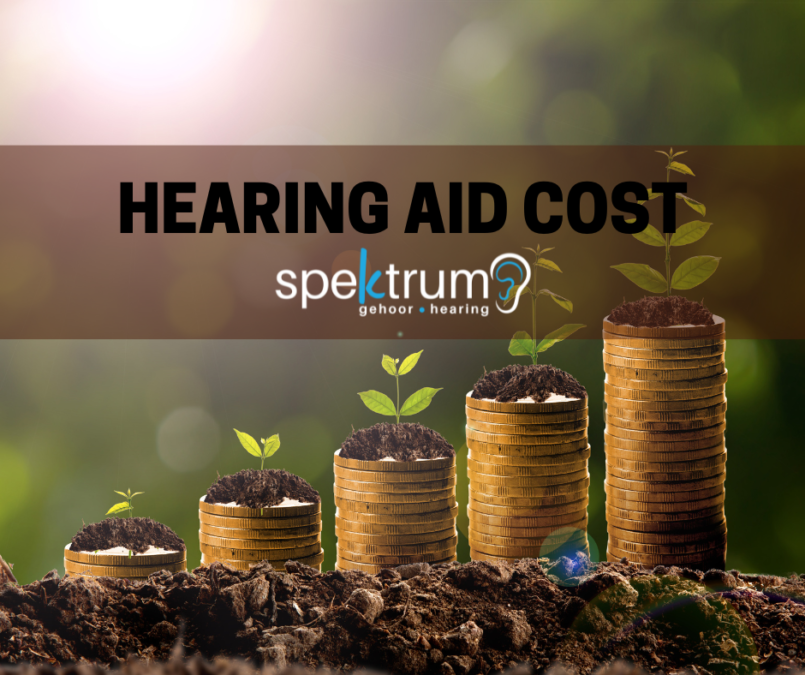
Masks makes it difficult to hear.. in more than ways than one!
April 29, 2020
The journey with hearing aids – What to expect
April 30, 2020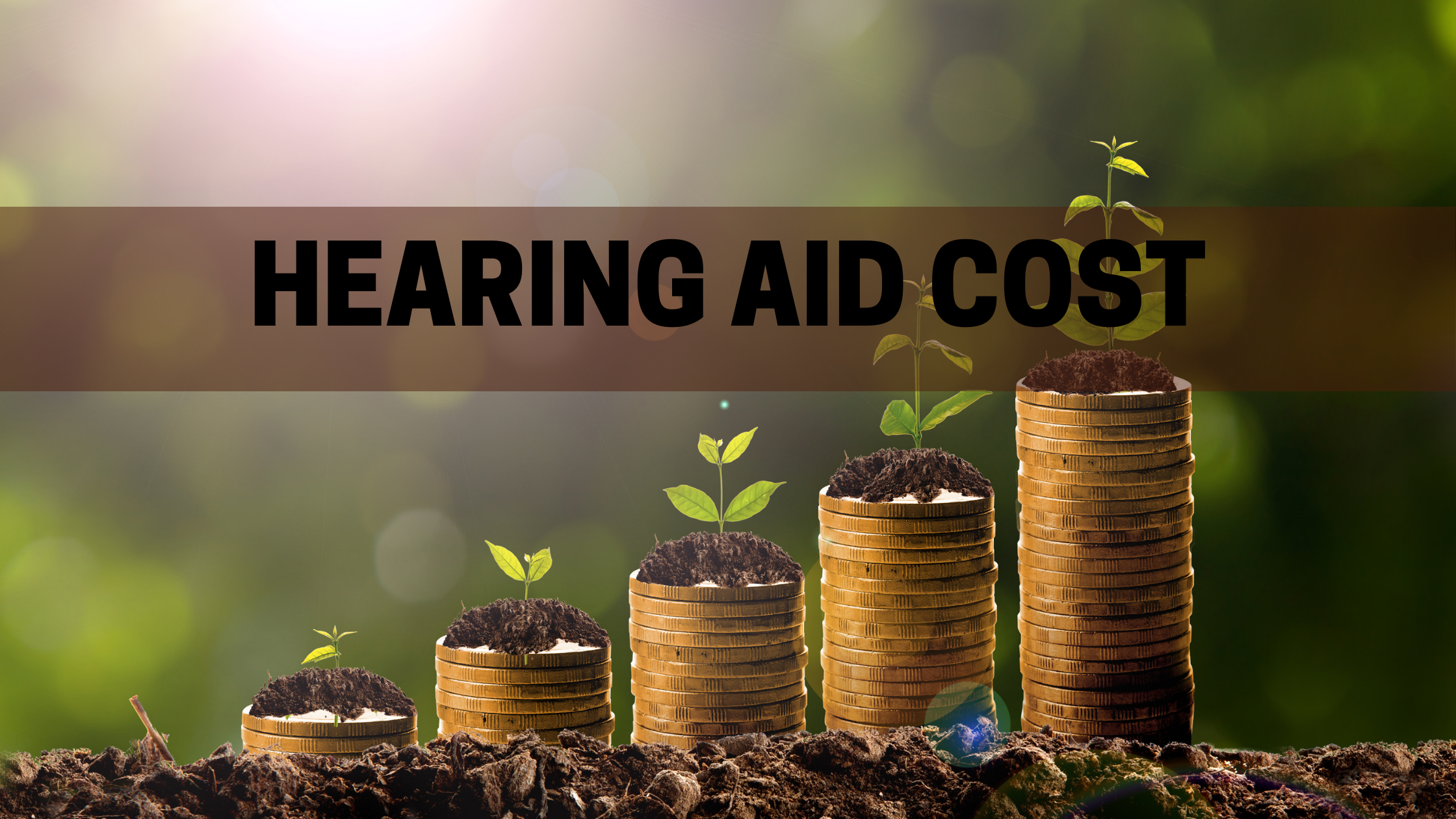 The cost of hearing instruments is a topic that has been frequently brought up by many individuals. The cost thereof is generally perceived as high – and in most cases, it is relatively high. The answer on how much a hearing instrument costs are generally not a one-size-fits-all answer.
The cost of hearing instruments is a topic that has been frequently brought up by many individuals. The cost thereof is generally perceived as high – and in most cases, it is relatively high. The answer on how much a hearing instrument costs are generally not a one-size-fits-all answer.
The good news is that the South African Revenue Service (SARS) gives an additional medical expense credit for those living with a disability which you may very well qualify for. Find out more here.
Individual factors to consider that influence the price of a recommended hearing instrument are:
Type of hearing loss, degree of hearing loss, physiological and anatomical factors of the individual. The preferences of the individual, the handling ability of the individual, the lifestyle, and the listening needs of the individual also need to be considered. Hearing aid prices also range quite significantly depending on the technology level looked at. To read more about why some hearing aids are more expensive than others CLICK HERE.
Why does it have a high price tag?
Technology
The amount of research and development that goes into the manufacturing of hearing instruments is monumental. The 6 largest hearing aid manufacturers spend over $500 million annually on developing hearing instruments. When looking at the levels of technology that is available in very small, compact, and sophisticated instruments, including Bluetooth, connectivity with smartphones, applications, and other electronic devices, the instrument’s ability to translate languages, track fitness activity, rechargeability, and advanced noise reduction abilities, it is clear that it is a very high technological instrument in a small device. Hearing instruments previously were one-size-fits-all, and they didn’t allow for adaptation to your needs. Today we have instruments that are programmed to your audiological profile, it adapts to your environment and assists your brain with the interpretation of sound and making sense of the message received. Noise reduction algorithms have increased noise reduction and speech clarity. We’ve removed noise and made it easier and less strenuous to hear in noisy environments for a less tiring hearing experience. Giving speech more clarity, and even solving the problem of ‘feedback’ to eliminate the nuisance whistling most hearing aids are subject to.
Warranty
A critical and essential factor to include in the discussion about the price of hearing instruments is the product’s warranty. Typical warranties generally include a 2 – 3 year warranty on a device and cover all repairs and services of instruments. This is an extremely important factor that should not be overlooked since hearing instruments are small, high-technology devices that are typically used around 8-16 hours per day and are sensitive to moisture and wax accumulation. If an instrument did not carry a warranty, the out-of-pocket expense of maintenance would be very big.
Selection, Fitting & Follow up of device fitment
Typically included in the fee of the hearing instrument is a professional fitting fee component that includes the initial fitting and calibration of the hearing device as well as some follow-up consultations which is essential in the adaptation and satisfaction with newly acquired hearing instruments. This is typically time intensive and counseling-intensive practice since the individual using the instrument should be adequately prepared, nurtured, and informed during the initial fitting and journey with the instruments thereafter, Your audiologist is tasked and equipped with recommending the one instrument that will suit your needs and determining where the following needs meet:
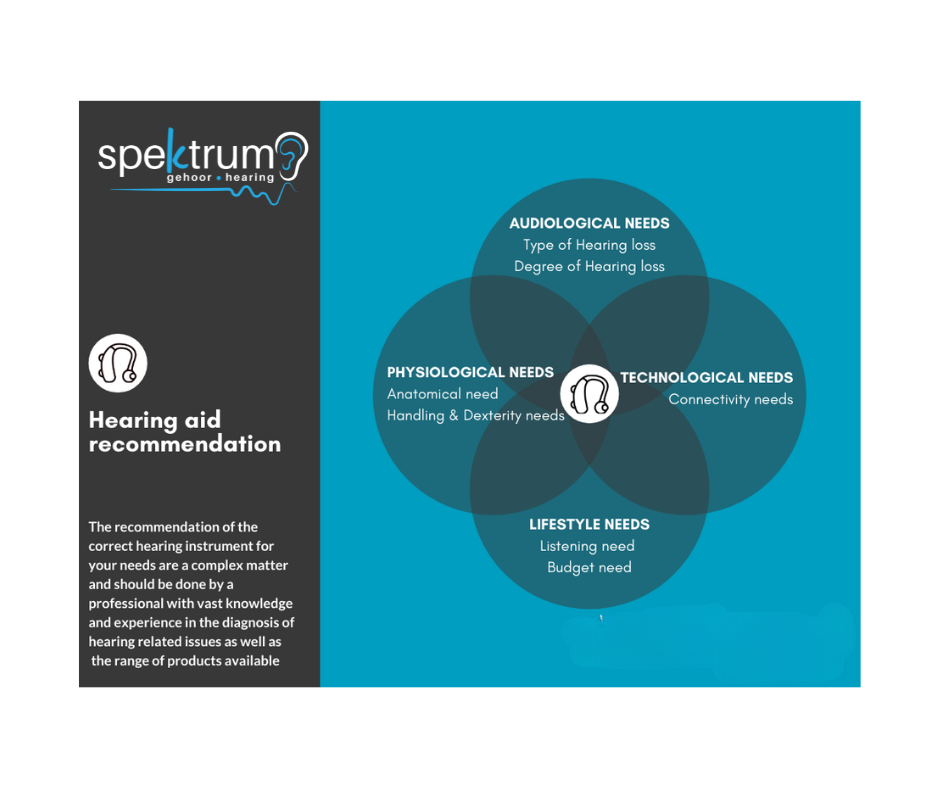
- Audiological needs
- Lifestyle needs
- Listening needs
- Physiological & anatomical needs
- Dexterity & handling needs
- Technology needs
- Connectivity needs
- Budget needs
Considering the number of devices available on the market at any time, the careful selection of the device specifically for you takes hours of training and keeping in touch with what is available in the marketplace and also mindfully sifting through options, its advantages, and the disadvantages of the specific individual. The experience of the audiologist is critical in this area. This, in addition to the clinical skills in the diagnosis and management of a variety of Audiological diseases, symptoms, etc. Your Audiologist typically holds a 4-year professional University degree with an array of in-depth medical knowledge that enables him/her to identify or possibly refer for further assessment of alarming co-existing diseases such as tumors etc.
The very nature of the patient & audiologist relationship is typically not a once-off event, but I like to refer to it as a collective taking of hands in the journey to better hearing. This relationship typically lasts for years and is an essential component of this journey.
Avenues of funding for hearing instruments:
- Medical aid schemes (private)
- Public healthcare
- Financing of instruments through third parties (monthly repayments)
What about more affordable options available?
Cheaper options for hearing devices, also known as Personal Sound Amplification Products (PSAPs) are available. Unfortunately, they typically amplify all sounds equally – including background noise and environmental sounds, and are not adjusted for your specific needs. The risk entails over-amplification – which can cause damage to your hearing in the long term, and it also involves the risk of under-amplification in certain frequencies which can lead to auditory deprivation. Read more on PSAPS here. We do not recommend sound amplifiers due to the above-mentioned factors as well as the fact that this is largely unregulated.
A Better Hearing Institute study that surveyed 2,000 hearing aid users about their fitting experience and level of satisfaction revealed that your healthcare provider (usually an audiologist or a hearing instrument specialist) plays a big role in the patient’s success with hearing aids. The outcome was straightforward: Those users who were fitted using a clinically validated hearing aid fitting protocol had greater satisfaction with their hearing aids. In other words, those patients who were given appropriate support and service by a licensed hearing aid professional heard better!
After buying hearing aids, a typical user will need about three follow-up visits for adjustments to get optimal sound quality. You will not be able to get that type of service through the mail.
Specifically, of those hearing aid users who received a comprehensive clinical protocol:
- 1 percent would repurchase the same brand of hearing aids.
- 85 percent were satisfied with how the hearing aids worked in multiple listening environments.
- 94 percent would recommend the professional they worked with to a friend.
- 99 percent were satisfied with the benefit they received from the hearing aids.
- 97 percent would recommend hearing aids to a friend.
- Alternatively, when an incomplete fitting and adjustment method is used, such as what might be offered to those who order hearing aids from the Internet:
- 14 percent would repurchase the same brand of hearing aids.
- 14 percent were satisfied with how the hearing aids worked in multiple listening environments.
- 39 percent would recommend the professional they worked with to a friend.
- 12 percent were satisfied with the benefit they received from the hearing aids.
- 56 percent would recommend hearing aids to a friend.
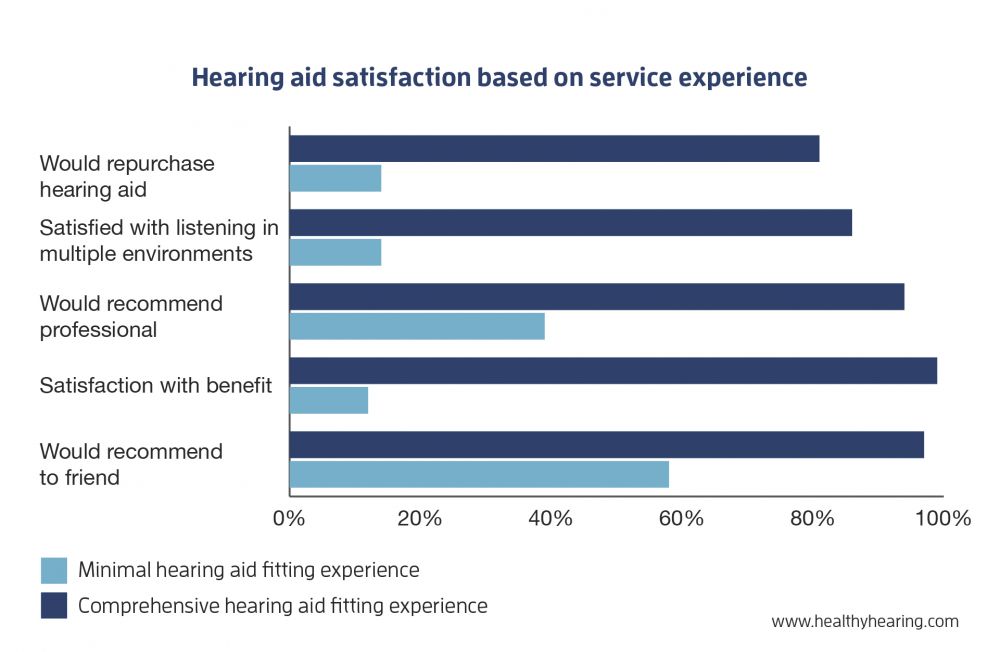 (https://www.healthyhearing.com/help/hearing-aids/prices)
(https://www.healthyhearing.com/help/hearing-aids/prices)
Source: www.hearingreview.com/practice-management/16967-marketrak-viii-the-impact-of-the-hearing-healthcare-professional-on-hearing-aid-user-success
In Conclusion:
Another way to think about the price of hearing aids. If your hearing aids cost R30 000 and have a lifespan of eight years, they will cost you approximately R3750 per year, R312 per month, or R10.41 per day. Or in the case of a lifespan of 5 years, they will cost you approximately R6000 per year, R500 per month, or R16.60 per day. In other words, while the total amount is high, the ongoing usage price is more reasonable. When you consider the communication, relationship, and health benefits you get from wearing hearing aids, most people agree that it is well worth it.
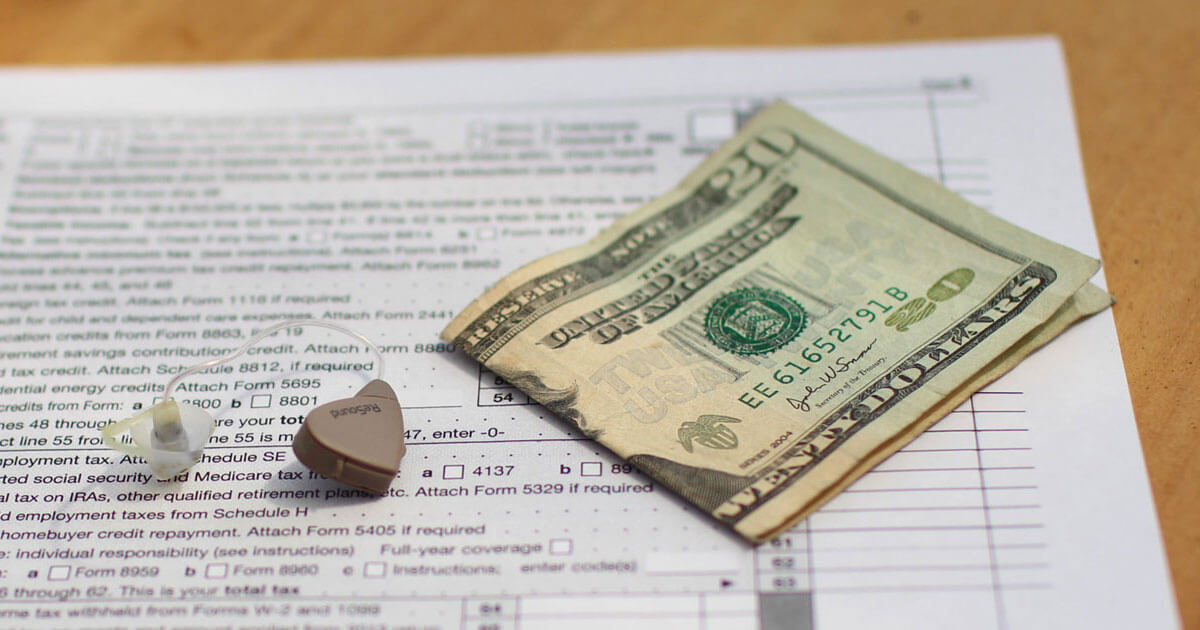
Why should I buy hearing aids?
When deciding whether or not to spend your hard-earned money on hearing aids, also consider the financial impact of not spending that money on hearing aids. It is nearly impossible to put a price on the missed conversations with your spouse, family, friends, and colleagues. One cannot put a price on the missed conversations with your spouse, family, friends, and colleagues. If you are hesitant about the use of hearing aids you should read this the following too! (Click on the link).
With hearing loss, you are also potentially missing some of the beautiful and important sounds of life: The laughter of your grandchildren, cheerful bird songs, raindrops falling softly outside your window, your doorbell, the car’s turn signal, and the timer on your oven.
If you are still in a working environment, you are also losing money due to your hearing loss.
Finally, untreated hearing loss is linked to other health conditions such as dementia, depression, high blood pressure, and increased risk of falls. It’s even been shown that untreated hearing loss results in higher overall healthcare costs.
Buying hearing aids is an important investment in your quality of life, working career, relationships, and overall health. The right hearing care professional will understand your hearing loss as well as your financial situation. Don’t put off this important step in your quality of life.
Our best advice is to go through a professional diagnosis and treatment process to ensure you get the correct hearing aid for your specific needs. Start by visiting a hearing care professional who identifies your specific and individual needs. You might have tinnitus, which makes your needs completely different from someone who has trouble following conversations in noisy situations even in quiet situations. Choosing the right device is overwhelming, but your trust your hearing care professional, because they are trained in this area. They talk to you and tailor their recommendation to fit your wishes and needs. It takes years of training and specialization to be able to safely help you with your hearing.


Contact us for a consultation to determine your needs and find a tailor-made solution that fits your needs.
Contact us if you need any other assistance!
Find out about the SARS additional medical expense tax credit here.



